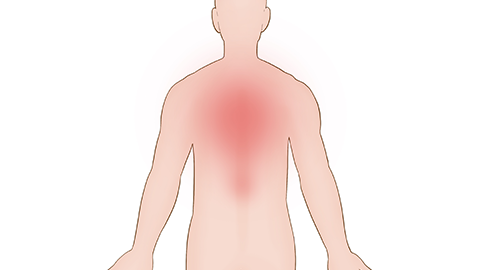What disease causes skin itching after taking a shower?
Generally speaking, there is no specific medical condition characterized by skin itching after bathing. Itching after bathing may be caused by excessively hot water, prolonged bathing time, dry skin, contact dermatitis, eczema, etc. Usually, this can be managed by adjusting bathing habits, applying moisturizing creams, or medical treatments. If symptoms persist, prompt medical attention is recommended. The detailed analysis is as follows:

1. Excessively hot water: Bathing with water that is too hot can damage the skin's natural oil layer, impairing the skin barrier and causing itching. It is recommended to adjust the water temperature to around 37°C to reduce skin irritation and relieve itching.
2. Prolonged bathing time: Long bathing sessions can excessively dehydrate the skin, leading to dryness and itching. It is advisable to shorten bathing time, keeping each session under 15 minutes to prevent excessive moisture loss.
3. Dry skin: Reduced sebum production and the removal of the skin's natural oils during bathing can worsen dryness, resulting in itching, often accompanied by flaking, roughness, and tightness. Treatment typically involves using moisturizing agents such as vitamin E cream, urea cream, or compound lactic acid cream as directed by a physician, along with enhanced skin hydration.
4. Contact dermatitis: Skin contact with allergens or irritants in shower gels, soaps, or other cleansing products during bathing may trigger an inflammatory reaction, causing itching along with symptoms such as redness, papules, and a burning sensation. Doctors often recommend treatments such as loratadine tablets, mometasone furoate cream, or zinc oxide ointment.
5. Eczema: Individuals with pre-existing eczema may experience worsened inflammation due to water temperature or friction during bathing, leading to itching accompanied by redness, blisters, oozing, and crusting. Treatment options include topical medications such as desonide cream, ebastine tablets, or calamine lotion, used under a physician's guidance.
In daily life, it is advisable to choose mild and gentle cleansing products, apply moisturizer promptly after bathing to maintain skin hydration, wear loose and breathable cotton clothing, minimize skin friction and irritation, and reduce the likelihood of experiencing itching after bathing.




